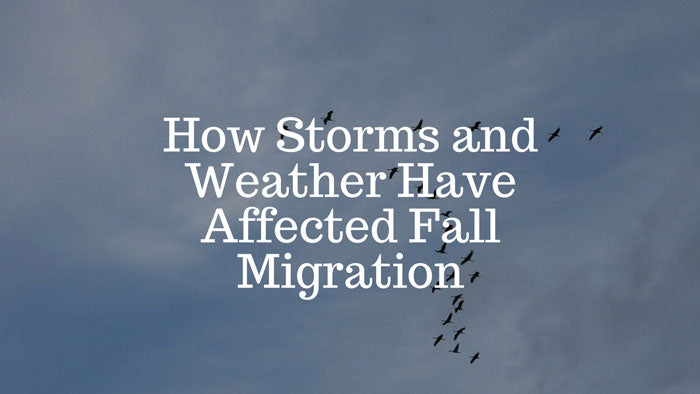Offer
Provide additional details about the offer you're running.
Provide additional details about the offer you're running.
Provide additional details about the offer you're running.

If you’ve been living on this continent for at least the last two months, it is no secret that the weather, particularly south of us here in Ottawa, has been rather dramatic. With two hurricanes rolling through the southern United States in as many weeks, the devastation was extensive and there are still many reeling from the after-effects of the storm(s).
While our fellow humans continue to piece their lives back together, there has been a great deal of chatter in the birding world about how these storms and the unseasonably warm weather have or will affect bird migration this fall.
It’s simply too early to tell. To make any real assessments of the damage, if any, these storms have caused our birds will take some time. While there were certainly casualties, it is believed that many birds survived (as they always do) the harrowing weather conditions. In fact, birds have a variety of strategies for dealing with large storms, such as hurricanes, including leaving the area; flying ahead of, or into the storm, or sheltering in place.
Even though we were a long way from these blistering storms, their effects were very much felt here for much of September. We were treated to insanely hot weather for this time of year, as the southern winds headed our way.
While we have yet to be able to corroborate the theory, in speaking with a number of birders around our area, it almost seems as if some birds had left us and then suddenly returned.
Take hummingbirds, for example, these small birds will often begin their migration under the cover of night, often using the winds to help carry them along. While many of our hummers had certainly left toward the beginning of September, suddenly, there have been sightings again.
One theory would suggest that possibly these small birds were pushed back our way as the storms raged south of us and stuck around in the warmer weather.
One thing that is great to have is a trusty bird watching notebook or journal. Each year dedicated birders take notes on sightings, particular events, weather conditions and time of year to have access to this data at a later point.
This works well in the event of storms such as the ones that struck the United States this year. While services such as eBird also do a great job of this, sometimes the pen hitting the page is tough to beat.
High Quality Blend